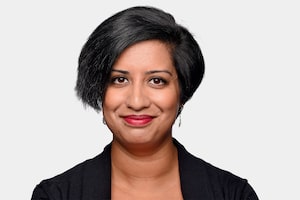Justin Trudeau is making the F-word fashionable. A self-proclaimed feminist, the Prime Minister never misses an opportunity to champion women's issues, even though he sometimes misses the finer nuances. The announcement of his partnership with Ivanka Trump on the Canada-United States Council for Advancement of Women Entrepreneurs and Business Leaders, for example, not only saw him sitting across from President Donald Trump, a man criticized for his own chauvinism, but presented an image of patriarchy's benefits: Both Trudeau and Ivanka Trump have parlayed privilege—especially paternal name recognition—into career opportunities unattainable for most people, particularly women.
This kind of systemic inequity is exactly what Prime Minister Trudeau should be addressing, but he has so far failed to do so. For all his feel-good feminism, his current policies won't create meaningful change for most Canadian women.
To be sure, Trudeau has made some strides. His gender-balanced cabinet was notable. But creating equal opportunity must extend beyond women who are able to run for public office. The single biggest barrier working women face is the gender pay gap, and it's the one problem that Trudeau has dragged his feet on fixing.
There are different ways to measure how women are shortchanged on pay. If the calculation is based on the annual earnings of full-time, full-year workers, women earn about 74 cents for every dollar made by men. If the metric is hourly wages, women earn about 88 cents for each dollar men earn.
No matter how it's measured, the gap is significant, and there's growing urgency for Ottawa to address the problem. Women comprise nearly 60% of college and university students in Canada, according to RBC Economics. Yet women with degrees in science, technology, engineering or math still earn, on average, $9,100 less per year than their male peers, RBC says.
While the Canadian Human Rights Act and various provincial laws cover pay equity, those outdated guidelines have failed to close the gap. And Canadian society as a whole pays the price. Fixing the wage gap would increase women's earnings by about $92 billion, according to PricewaterhouseCoopers. That would significantly raise female purchasing power. It would also spur greater female participation in the labour force, boosting GDP by 4.9%, or $105 billion, says PWC.
But instead of tackling the pay gap, the Trudeau government is promising to study the issue, with new legislation by the end of 2018. In the meantime, it's focusing on initiatives that benefit a minority of women. Trudeau's most radical proposal is to expand maternity leave from 12 to 18 months, albeit at a lower payout rate. It's a policy that will primarily assist higher-income earners who can afford more time off and those not fearful of the so-called motherhood penalty that prevents women from cracking the glass ceiling at work.
The government's definition of success, according to its most recent budget, is to create "more equal wages and increased labour market participation." But that's not the same as mandating equal pay. Other countries have already taken such action. Iceland aims to eliminate its gender pay gap by 2022 by requiring all businesses that employ at least 25 people to provide proof of pay equity or face fines. Australia and the United Kingdom, meanwhile, have slapped reporting obligations covering pay equity on large companies.
Trudeau would do well to follow Iceland's example. Women face a pay gap in Canada because there are no consequences for discrimination. The time for study has passed. A year ago, the Special Committee on Pay Equity presented 31 recommendations. Shockingly, among them was one urging the government to adopt the majority of recommendations from a study collecting dust since 2004.
The 2016 report also urged the creation of a new pay-equity commission and a tribunal that would expedite dispute resolution. Both reforms are badly needed. The current system is complaint-based, which puts the onus on women rather than on companies. Many women simply cannot afford the legal costs of seeking redress.
It's high time for our feminist Prime Minister to walk the talk. Trudeau told the United Nations that he'll continue calling himself a "feminist until it is met with a shrug." Thus far, his policies aimed at helping women ought to elicit just that.
Want to interact with other informed Canadians and Globe journalists? Join our exclusive Globe and Mail subscribers Facebook group
 Rita Trichur
Rita Trichur